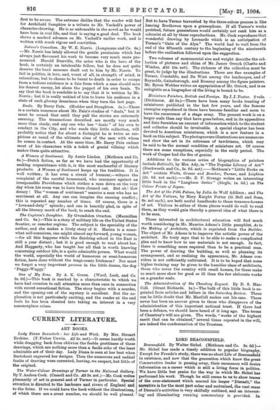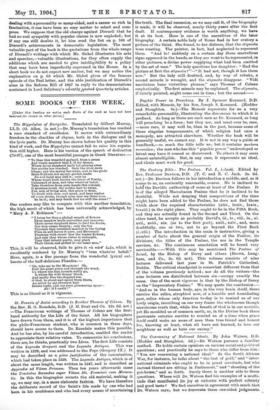Mr. Sichel has made a timely addition to popular biography.
Except for Fronde's study, there was no short Life of Beaconsfield in existence, and now that the generation which knew the great Conservative leader is passing away, their successors will desire information on a career which is still a living force in politics. We have little but praise for the way in which Mr. Sichel has performed his work. Though he still seems to us to show traces of the over-statement which marred his larger "Disraeli," the narrative is for the most part sober and restrained, the vast mass of Disraeli's activities is very skilfully outlined, and an interest- ing and illuminating running commentary is provided. In dealing with &personality so many-sided, and a career so rich in fascination, it can have been no easy matter to select and com- press. We suppose that the old charge against Disraeli that he had no real sympath'y with popular claims is now exploded; but if any one still doubts it, let him read the list on p. 168 of Disraeli's achievements in democratic legislation. The most valuable part of the book is the quotations from the whole range of Disraeli's writings with which Mr. Sichel illustrates his acts and speeches,—valuable illustrations, for they often supply the additions which are needed to give intelligibility to a policy that may have been imperfectly expressed in the House. In a short book we do not expect new matter, but we may notice the explanation on p. 63 which Mr. Sichel gives of the famous episode of the Peel letter, and the able justification of Disraeli's aims in the Reform Bill of 1867 in reply to the denunciations contained in Lord Salisbury's rebentlysuoted Quarterly articles.



































 Previous page
Previous page